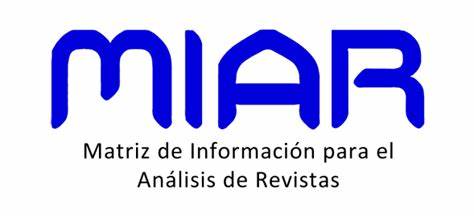Enfoques de sistemas socioecológicos, esenciales para comprender y responder a los impactos complejos de COVID-19 en las personas y el medio ambiente
DOI:
https://doi.org/10.54502/msuceva.v2n2a7Palabras clave:
Antropausa, COVID-19, complejidad socioecológica, resiliencia ecológica, sistemas socioecológicos (SSE)Resumen
La pandemia de la enfermedad del coronavirus 2019 (COVID-19) está impactando dramáticamente los sistemas sociales planetarios y humanos que están inseparablemente vinculados. Las enfermedades zoonóticas como la COVID-19 exponen cómo el bienestar humano está inextricablemente interconectado con el medio ambiente y con otras crisis socioecológicas convergentes (impulsadas por los humanos), como las pérdidas dramáticas de biodiversidad, el cambio en el uso de la tierra y el cambio climático. Argumentamos que el COVID-19 es en sí mismo una crisis socioecológica, pero hasta ahora las respuestas no han incluido la resiliencia ecológica, en parte porque la metáfora de la “Antropausa” ha creado una sensación poco realista de comodidad que excusa la inacción. Las narrativas de la antropausa desmienten el hecho de que la extracción de recursos ha continuado durante la pandemia y que los negocios como de costumbre continúan causando una degradación generalizada del ecosistema que requiere atención política inmediata. En algunos casos, las medidas de política de COVID-19 contribuyeron aún más al problema, como la reducción de los impuestos ambientales o la aplicación de las normas. Mientras que algunos sistemas socioecológicos (SSE) están experimentando impactos reducidos, otros están experimentando lo que llamamos un "Antrochoque", con más visitantes y un uso intensificado. Las diversas causas e impactos de la pandemia se pueden comprender mejor con una lente socioecológica. Los conocimientos socioecológicos son necesarios para planificar y desarrollar la resiliencia necesaria para enfrentar la pandemia y futuras crisis socioecológicas. Si nosotros, como sociedad, nos tomamos en serio la reconstrucción mejor de la pandemia, debemos adoptar un conjunto de respuestas de investigación y políticas informadas por el pensamiento SSE.
Descargas
Métricas
Citas
IPBES. Global assessment report of the Intergovernmental Science-Policy Platform on Biodiversity and Ecosystem Services (S. Díaz, J. Settele, E. Brondízio, & H. T. Ngo, Eds.). IPBES Secretariat; 2019. https://doi.org/10.5281/zenodo.3831674
IPBES. Summary for policymakers of the global assessment report on biodiversity and ecosystem services of the Intergovernmental Science-Policy Platform on Biodiversity and Ecosystem Services (S. Díaz, J. Settele, E. Brondízio, & H. T. Ngo, Eds.). IPBES Secretariat; 2019.
https://doi.org/10.5281/zenodo.3553579
Erdelen WR. Shaping the Fate of Life on Earth: The Post-2020 Global Biodiversity Framework. Glob Policy. 2020; 11(3):347–359. https://doi.org/10.1111/1758-5899.12773 DOI: https://doi.org/10.1111/1758-5899.12773
Chakraborty I, Maity P. COVID-19 outbreak: migration, effects on society, global environment and prevention. Sci Total Environ. 2020; 728:138882. https://doi.org/10.1016/j.scitotenv.2020.138882 DOI: https://doi.org/10.1016/j.scitotenv.2020.138882
Panchal N, Kamal R, Cox C, Garfield R. The implications of COVID-19 for mental health and substance use. Kaiser family foundation; 2021.
Pfefferbaum B, North CS. Mental Health and the Covid-19 Pandemic. N Engl J Med. 2020; 383:510–512.
https://doi.org/10.1056/NEJMp2008017 DOI: https://doi.org/10.1056/NEJMp2008017
Vindegaard N, Benros ME. COVID-19 pandemic and mental health consequences: Systematic review of the current evidence. Brain Behav Immun. 2020; 89:531–542. https://doi.org/10.1016/j.bbi.2020.05.048 DOI: https://doi.org/10.1016/j.bbi.2020.05.048
Bates AE, Primack RB, Moraga P, Duarte CM. COVID-19 pandemic and associated lockdown as a “Global Human Confinement Experiment” to investigate biodiversity conservation. Biol Conserv. 2020;
:108665. https://doi.org/10.1016/j.biocon.2020.108665 DOI: https://doi.org/10.1016/j.biocon.2020.108665
Rutz C, Loretto M-C, Bates AE, Davidson SC, Duarte CM, Jetz W, et al. COVID-19 lockdown allows researchers to quantify the effects of human activity on wildlife. Nat Ecol Evol. 2020; 4(9):1156–1159. https://doi.org/10.1038/s41559-020-1237-z DOI: https://doi.org/10.1038/s41559-020-1237-z
Mehring M, Bernard B, Hummel D, Liehr S, Lux A. Halting biodiversity loss: how social–ecological biodiversity research makes a difference. Int J Biodivers Sci Ecosyst Serv Manag. 2017; 13(1):172–180. https://doi.org/10.1080/21513732.2017.1289246. DOI: https://doi.org/10.1080/21513732.2017.1289246
Berkes F, Folke C. 1. Linking Social and Ecological Systems for Resilience and Sustainability. In: Linking Social and Ecological Systems: Management Practices and Social Mechanisms for Building Resilience. Cambridge: 1998. pp. 1–26.
Berkes F, Ibrarra MA, Armitage D, Charles T, Loucks L, Makino M, et al. Guidelines for Analysis of Social-Ecological Systems. Community Conservation Research Network (CCRN). 2014. https://www.communityconservation.net/wp-content/uploads/2016/01/FINAL_CCRN-Guidelinesfor-Analysis-of-Social-Ecological-Systems-September-2014.pdf.
Hertz T, Schluter M. The SES-Framework as Boundary Object to Address Theory Orientation in Social–ecological System Research: The SES-TheOr Approach.” Ecol Econ. 2015; 116:12–24. https://doi.org/10.1016/j.ecolecon.2015.03.022. DOI: https://doi.org/10.1016/j.ecolecon.2015.03.022
Folke C. Resilience: the emergence of a perspective for social-ecological systems analyses. Glob Environ. 2006; 16(3):253–267.
https://doi.org/10.1016/j.gloenvcha.2006.04.002 DOI: https://doi.org/10.1016/j.gloenvcha.2006.04.002
United States Environmental Protection Agency. Colony Collapse Disorder. 2021. https://www.epa.gov/pollinator-protection/colony-collapse-disorder
Garibaldi LA, Steffan-Dewenter I, Winfree R, Aizen MA, Bommarco R, Cunningham SA, et al. Wild pollinators enhance fruit set of crops regardless of honey bee abundance. Science. 2013; 339(6127):1608–11. https://doi.org/10.1126/science.1230200 DOI: https://doi.org/10.1126/science.1230200
Fiksel J. Designing resilient, sustainable, systems. Environ Sci Technol. 2003; 37(23):5330–5339. https://doi.org/10.1021/es0344819 DOI: https://doi.org/10.1021/es0344819
Brown C, Rounsevell M. How can social-ecological system models simulate the emergence of social ecological crises? People Nat. 2020; 3(1):88–103. https://doi.org/10.1002/pan3.10167 DOI: https://doi.org/10.1002/pan3.10167
Nystro¨m M, Jouffray JB, Norstro¨m AV, Crona B, Søgaard Jørgensen P, Carpenter SR, et al. Anatomy and resilience of the global production ecosystem. Nature. 2019; 575(7781):98–108. https://doi.org/10.1038/s41586-019-1712-3 DOI: https://doi.org/10.1038/s41586-019-1712-3
Dandy N. 2020. Behaviour, Lockdown and the Natural World. Environ Values. 2020; 29(3):253–259.
https://doi.org/10.3197/096327120X15868540131215 DOI: https://doi.org/10.3197/096327120X15868540131215
Patz JA, Daszak P, Tabor GM, Aguirre AA, Pearl M, Epstein J, et al. Unhealthy landscapes: policy recommendations on land use change and infectious disease emergence. Environ Health Perspect. 2004; 112(10):1092–1098. https://doi.org/10.1289/ehp.6877 DOI: https://doi.org/10.1289/ehp.6877
Lawton G. Rescue plan for nature: How to fix the biodiversity crisis. New Sci. 17 February 2021.
UNEP. Emerging zoonotic diseases and links to ecosystem health–UNEP Frontiers 2016 chapter.2016.
https://wedocs.unep.org/bitstream/handle/20.500.11822/36614/FB16ch2.pdf
Everard M, Johnston P, Santillo D, Staddon C. The role of ecosystems in mitigation and management of Covid-19 and other zoonoses. Environ Sci Policy. 2020; 111:7–17. https://doi.org/10.1016/j.envsci.2020.05.017 DOI: https://doi.org/10.1016/j.envsci.2020.05.017
Plowright RK, Reaser JK, Locke H, Woodley SJ, Patz JA, Becker DJ, et al. Land use-induced spillover: a call to action to safeguard environmental, animal, and human health. Lancet Planet Health. 2021; 5 (4):e237–e245. https://doi.org/10.1016/S2542-5196(21)00031-0 DOI: https://doi.org/10.1016/S2542-5196(21)00031-0
Bartlow AW, Manore C, Xu C, Kaufeld KA, Del Valle S, Ziemann A, et al. Forecasting Zoonotic Infectious Disease Response to Climate Change: Mosquito Vectors and a Changing Environment. Vet Sci. 2019; 6(2):40. https://doi.org/10.3390/vetsci6020040 DOI: https://doi.org/10.3390/vetsci6020040
Samuelsson K, Barthel S, Colding J, Macassa G, Giusti M. Urban nature as a source of resilience during social distancing amidst the coronavirus pandemic. OSF Preprints. 2020. https://doi.org/10.31219/osf.io/3wx5a DOI: https://doi.org/10.31219/osf.io/3wx5a
Zabaniotou A. A systemic approach to resilience and ecological sustainability during the COVID-19 pandemic: Human, societal, and ecological health as a system-wide emergent property in the Anthropocene. Glob Transit. 2020; 2:116–126. https://doi.org/10.1016/j.glt.2020.06.002 DOI: https://doi.org/10.1016/j.glt.2020.06.002
Vivid Economics. Greenness of Stimulus Index: An assessment of COVID-19 stimulus by G20 countries and other major economies in relation to climate action and biodiversity goals. July 2021.
Diamond J. Collapse: How societies choose to fail or succeed. Penguin; 2011.
Searle A, Turnbull J. Resurgent natures? More-than-human perspectives on COVID-19. Dialogues
Hum Geogr. 2020; 10:291–295. https://doi.org/10.1177/2043820620933859 DOI: https://doi.org/10.1177/2043820620933859
Bates AE, Primack RB, Biggar BS, Bird TJ, Clinton ME, Command RJ, et al. Global COVID-19 lockdown highlights humans as both threats and custodians of the environment. Biol Conserv. 2021; 263:109175. https://doi.org/10.1016/j.biocon.2021.109175 DOI: https://doi.org/10.1016/j.biocon.2021.109175
McElwee P, Turnout E, Chiroleu-Assouline M, Clapp J, Isenhour C, Jackson T, et al. Ensuring a Post-COVID Economic Agenda Tackles Global Biodiversity Loss. One Earth. 2020; 3(4):448–461. https://doi.org/10.1016/j.oneear.2020.09.011 DOI: https://doi.org/10.1016/j.oneear.2020.09.011
Moris D. Research exceptionalism and opportunism during the coronavirus pandemic. J BUON. 2020; 25(6):2533–6. PMID: 33455093.
Kadykalo AN, Haddaway NR, Rytwinski T, Cooke SJ. Ten principles for generating accessible and useable COVID-19 environmental science and a fit-for-purpose evidence base. Ecol Solutions Evidence. 2021; 2(1):e12041. https://doi.org/10.1002/2688-8319.12041 DOI: https://doi.org/10.1002/2688-8319.12041
Soga M, Evans MJ, Cox DTC, Gaston KJ. Impacts of the COVID-19 pandemic on human–nature interactions: Pathways, evidence and implications. People Nat. 2021; 3:518–527. https://doi.org/10.1002/pan3.10201 DOI: https://doi.org/10.1002/pan3.10201
Young N, Kadykalo AN, Beaudoin C, Hackenburg DM, Cooke SJ. Is the Anthropause a useful symbol and metaphor for raising environmental awareness and promoting reform? Environ Conserv. 2021; 48 (4):274–277. https://doi.org/10.1017/S0376892921000254 DOI: https://doi.org/10.1017/S0376892921000254
Geng DC, Innes J, Wu W, Wang G. Impacts of COVID-19 pandemic on urban park visitation: a global analysis. J For Res. 2021; 32:553–567. https://doi.org/10.1007/s11676-020-01249-w DOI: https://doi.org/10.1007/s11676-020-01249-w
Andre´s SM, Mir LC, Bergh JC, Ring I, Verburg PH. Ineffective biodiversity policy due to five rebound effects. Ecosyst Serv. 2012; 1:101–110. https://doi.org/10.1016/j.ecoser.2012.07.003 DOI: https://doi.org/10.1016/j.ecoser.2012.07.003
Grima N, Corcoran W, Hill-James C, Langton B, Sommer H, Fisher B. The importance of urban natural areas and urban ecosystem services during the COVID-19 pandemic. PLoS ONE. 2020; 15:e0243344. https://doi.org/10.1371/journal.pone.0243344 DOI: https://doi.org/10.1371/journal.pone.0243344
Robbins J. Revenge travel is coming after a year of pent-up demand. The Globe and Mail. Published March 12, 2021. https://www.theglobeandmail.com/life/travel/article-revenge-travel-iscoming-are-you-ready/
Pinder AC, Raghavan R, Britton JR, Cooke SJ. COVID-19 and biodiversity: The paradox of cleaner rivers and elevated extinction risk to iconic fish species. Aquat Conserv. 2020; 30(6):1061–1062. https://doi.org/10.1002/aqc.3416 DOI: https://doi.org/10.1002/aqc.3416
Lu D. Covid-19 hit biodiversity across the globe. Here’s how to fix things. New Sci. 10 March 2021.
https://doi.org/10.1016/j.worlddev.2018.08.011 DOI: https://doi.org/10.1016/j.worlddev.2018.08.011
Brancalion PHS, Broadbent EN, de-Miguel S, Cardil A, Rosa MR, Almeida CT, et al. Emerging threats linking tropical deforestation and the COVID-19 pandemic. Perspect Ecol Conserv. 2020; 18(4):243–246. https://doi.org/10.1016/j.pecon.2020.09.006 DOI: https://doi.org/10.1016/j.pecon.2020.09.006
Evans KL, Ewen JG, Guillera-Arroita G, Johnson JA, Penteriani V, Ryan SJ, et al. Conservation in the maelstrom of Covid-19—a call to action to solve the challenges, exploit opportunities and prepare for the next pandemic. Anim Conserv. 2020; 23(3):235–238.
https://doi.org/10.1111/acv.12601 DOI: https://doi.org/10.1111/acv.12601
Spring J. Illegal loggers uncowed by coronavirus as deforestation rises in Brazil. Reuters. 10 April 2020. https://www.reuters.com/article/us-brazil-environment/illegal-loggers-uncowed-bycoronavirus-
as-deforestation-rises-in-brazil-idUKKCN21S1I1?edition-redirect=uk.
Rare Bird Alert. Wildlife criminals taking advantage of COVID-19 crisis. 13 April 2020.
Hentati-Sundberg J, Berglund P-A, Hejdstro¨m A, Olsson O. COVID-19 lockdown reveals tourists as seabird guardians. Biol Conserv. 2021; 254:108950. https://doi.org/10.1016/j.biocon.2021.108950 DOI: https://doi.org/10.1016/j.biocon.2021.108950
Conservation International. Conservation International Reports Increase in Poaching and Tropical Deforestation Due To COVID-19 Restrictions. 21 April 2020. https://www.conservation.org/press-releases/2020/04/21/conservation-international-reports-increase-in-poaching-and-tropicaldeforestation-due-to-covid-19-restrictions.
Rondeau D, Perry B, Grimard F. The Consequences of COVID-19 and Other Disasters for Wildlife and Biodiversity. Environ Resource Econ. 2020; 76:945–961. https://doi.org/10.1007/s10640-020-00480-7 DOI: https://doi.org/10.1007/s10640-020-00480-7
Lima EC. In COVID’s Shadow, Illegal Fishing Flourishes. Hakai Magazine. 8 July 2020. https://hakaimagazine.com/news/in-covids-shadow-illegal-fishing-flourishes/
Mongabay. Lockdown allowed illegal fishing to spike in Philippines, satellite data suggest. 7 June 2020.
Cunningham AA, Daszak P, Wood JLN. (2017). One Health, emerging infectious diseases and wildlife: two decades of progress? Philos Trans R Soc Lond B Biol Sci. 2017; 372:20160167. https://doi.org/10.1098/rstb.2016.0167 DOI: https://doi.org/10.1098/rstb.2016.0167
Faust CL, McCallum HI, Bloomfield LSP, Gottdenker NL, Gillespie TR, Torney CJ, et al. Pathogen spillover during land conversion. Ecol Lett. 2018; 21:471–483. https://doi.org/10.1111/ele.12904 DOI: https://doi.org/10.1111/ele.12904
Figliozzi M, Unnikrishnan A. Home-deliveries before-during COVID-19 lockdown: Accessibility, environmental justice, equity, and policy implications. Transp Res D Transp Environ. 2021; 93:102760. https://doi.org/10.1016/j.trd.2021.102760 DOI: https://doi.org/10.1016/j.trd.2021.102760
Cole HVS, Anguelovski I, Baró F, García-Lamarca M, Kotsila P, Pérez del Pulgar C, et al. The COVID-19 pandemic: power and privilege, gentrification, and urban environmental justice in the global north. Cities Health 2020; https://doi.org/10.1080/23748834.2020.1785176 DOI: https://doi.org/10.1080/23748834.2020.1785176
Washington HA. How environmental racism is fueling the coronavirus pandemic. Nature. 2020; 581:241.
https://doi.org/10.1038/d41586-020-01453-y DOI: https://doi.org/10.1038/d41586-020-01453-y
Brandt EB, Beck AF, Mersha TB. Air pollution, racial disparities, and COVID-19 mortality. J Allergy Clin Immunol. 2020; 146(1):61–63. https://doi.org/10.1016/j.jaci.2020.04.035 DOI: https://doi.org/10.1016/j.jaci.2020.04.035
Terrell KA, James W. Racial Disparities in Air Pollution Burden and COVID-19 Deaths in Louisiana, USA, in the Context of Long-Term Changes in Fine Particulate Pollution. Environ Justice. 2020. https://doi.org/10.1089/env.2020.0018 DOI: https://doi.org/10.1089/env.2020.0018
Wu X, Nethery RC, Sabath MB, Braun D, Dominici F. Air pollution and COVID-19 mortality in the United States: Strengths and limitations of an ecological regression analysis. Sci Adv. 2020; 6(45):eabd4049. https://doi.org/10.1126/sciadv.abd4049 DOI: https://doi.org/10.1126/sciadv.abd4049
Walters G, Broome NP, Cracco M, Dash T, Dudley N, Elias S, et al. Covid-19, Indigenous Peoples, Local Communities and Natural Resource Governance. PARKS. 2021;27. https://doi.org/10.2305/IUCN.CH.2021.PARKS-27-SIGW.en DOI: https://doi.org/10.2305/IUCN.CH.2021.PARKS-27-SIGW.en
Menton M, Milanez F, Machado de Andrade Souza J, Cruz FSM. The COVID-19 pandemic intensified resource conflicts and indigenous resistance in Brazil. World Dev. 2021; 138:105222. https://doi.org/10.1016/j.worlddev.2020.105222 DOI: https://doi.org/10.1016/j.worlddev.2020.105222
Schoon M, Van der Leeuw S. The Shift toward Social-Ecological Systems Perspectives: Insights into the Human-Nature Relationship. Nat Sci Soc. 2015; 23(2):166–174. https://doi.org/10.1051/nss/2015034 DOI: https://doi.org/10.1051/nss/2015034
Mueller JT, McConnell K, Burow PB, Pofahl K, Merdjanoff AA, Farrell J. Impacts of the COVID-19 pandemic on rural America. Proc Natl Acad Sci U S A. 2021; 118(1):2019378118. https://doi.org/10.1073/pnas.2019378118 DOI: https://doi.org/10.1073/pnas.2019378118
New Scientist. Covid-19 is a wake-up call to stop abusing the ecosystems we depend on. New Sci17 February 2021.
Sahin O, Salim H, Suprun E, Richards R, MacAskill S, Heilgeist S, et al. Developing a Preliminary Causal Loop Diagram for Understanding the Wicked Complexity of the COVID-19 Pandemic. Systems. 2020; 8(2):20. https://doi.org/10.3390/systems8020020 DOI: https://doi.org/10.3390/systems8020020
Kadykalo AN, Kelly LA, Berberi A, Reid JL, Findlay CS. Research effort devoted to regulating and supporting ecosystem services by environmental scientists and economists. PLoS ONE. 2021; 16(5): e0252463. https://doi.org/10.1371/journal.pone.0252463 DOI: https://doi.org/10.1371/journal.pone.0252463
Binder CR, Hinkel J, Bots PWG, Pahl-Wostl C. Comparison of frameworks for analyzing social-ecological systems. Ecol Soc. 2013; 18(4):26. https://doi.org/10.5751/ES-05551-180426 DOI: https://doi.org/10.5751/ES-05551-180426
Rissman AR, Gillon S. Where is Ecology and Biodiversity in Social–Ecological Systems Research? A Review of Research Methods and Applied Recommendations. Conserv Lett. 2017; 10(1):86–93. https://doi.org/10.1111/conl.12250 DOI: https://doi.org/10.1111/conl.12250
Cumming GS, Cumming DMG, Redman CL. Scale mismatches in social-ecological systems: causes, consequences, and solutions. Ecol Soc. 2006; 11(1):14. https://doi.org/10.5751/ES-01569-110114 DOI: https://doi.org/10.5751/ES-01569-110114
Cumming GS, Olsson P, Chaplin III, Holling CS. Resilience, experimentation, and scale mismatches in social-ecological landscapes. Landsc Ecol. 2013; 28:1139–1150. https://doi.org/10.1007/s10980-012-9725-4 DOI: https://doi.org/10.1007/s10980-012-9725-4
Beaudoin C, Mistry I, Young N. Collaborative knowledge mapping to inform environmental policy-making: The case of Canada’s Rideau Canal National Historic Site. Environ Sci Policy. 2022; 128:299–309. https://doi.org/10.1016/j.envsci.2021.12.001 DOI: https://doi.org/10.1016/j.envsci.2021.12.001
Mistry I, Beaudoin C, Kotecha J, Evans H, Stevens M, Vermaire JC, et al. Action research to improve water quality in Canada’s Rideau Canal: how do local groups reshape environmental governance? Local Environ. 2021; 26(5):575–594.
https://doi.org/10.1080/13549839.2021.1904857 DOI: https://doi.org/10.1080/13549839.2021.1904857
Hoole A, Berkes F. Breaking down fences: Recoupling social-ecological for biodiversity conservation in Namibia. Geoforum. 2010; 41(2):304–317. https://doi.org/10.1016/j.geoforum.2009.10.009 DOI: https://doi.org/10.1016/j.geoforum.2009.10.009
Zinsstag J, Schelling E, Waltner-Toews D, Tanner M. From “one medicine” to “one health” and systemic approaches to health and well-being. Prev Vet Med. 2011; 101(3–4):148–156. https://doi.org/10.1016/j. DOI: https://doi.org/10.1016/j.prevetmed.2010.07.003
prevetmed.2010.07.003 DOI: https://doi.org/10.1088/1475-7516/2010/07/003
Gibbs EPJ. The evolution of One Health: a decade of progress and challenges for the future. Vet Rec. 2014; 174(4):85–91.
https://doi.org/10.1136/vr.g143 DOI: https://doi.org/10.1136/vr.g143
Seltenrich N. Down to earth: the emerging field of planetary health. Environ Health Perspect. 2018;126:7.
https://doi.org/10.1289/EHP2374 DOI: https://doi.org/10.1289/EHP2374
de Garine-Wichatitsky M, Binot A, Ward J, Caron A, Perrotton A, Ross H, et al. "Health in" and "Health of" Social-Ecological Systems: A practical framework for the management of healthy and resilient agricultural and natural ecosystems. Front Public Health. 2021; 8:982.
https://doi.org/10.3389/fpubh.2020.616328 DOI: https://doi.org/10.3389/fpubh.2020.616328
de Garine-Wichatitsky M, Binot A, Morand S, Kock R, Roger F, Wilcox BA. Will the COVID-19 crisis trigger a One Health coming-of-age? Lancet Planet Health. 2020; 4(3):e377–e378. https://doi.org/10.1016/S2542-5196(20)30179-0 DOI: https://doi.org/10.1016/S2542-5196(20)30179-0
Schneider F, Matias D, Burkhart S, Drees L, Fickel T, Hummel D, et al. Biodiversity conservation as infectious disease prevention: Why a social-ecological perspective is essential. Global Sustainability.2021; 4:E13. https://doi.org/10.1017/sus.2021.11 DOI: https://doi.org/10.1017/sus.2021.11
Rockstro¨m J, Steffen W, Noone K, Persson Å, Stuart Chapin F III, Lambin E, et al. Planetary boundaries: exploring the safe operating space for humanity. Ecol Soc. 2009; 14(2):32. https://doi.org/10.5751/ES-03180-140232 DOI: https://doi.org/10.5751/ES-03180-140232
Rockstro¨m J, Steffen W, Noone K, Persson A, Stuart Chapin F III, Lambin EF, et al. A safe operating space for humanity. Nature. 2009; 461:472–475. https://doi.org/10.1038/461472a DOI: https://doi.org/10.1038/461472a
Steffen W, Richardson K, Rockstro¨m J, Cornell SE, Fetzer I, Bennett EM, et al. Planetary boundaries: Guiding human development on a changing planet. Science. 2015; 347(6223):129855. https://doi.org/ DOI: https://doi.org/10.1126/science.1259855
1126/science.1259855
Díaz S, Settele J, Brondízio ES, Ngo HT, Agard J, Arneth A, et al. Pervasive human-driven decline of life on Earth points to the need for transformative change. Science. 2019; 366(6471):eaax3100. https://doi.org/10.1126/science.aax3100 DOI: https://doi.org/10.1126/science.aax3100
Auld G., Bernstein S., Cashore B. et al. Managing pandemics as super wicked problems: lessons from, and for, COVID-19 and the climate crisis. Policy Sci 54, 707–728 (2021). https://doi.org/10.1007/s11077-021-09442-2 DOI: https://doi.org/10.1007/s11077-021-09442-2
Herse MR, Lyver PO’ B, Scott N, McIntosh AR, Coats SC, Gormley AM, et al. Engaging Indigenous Peoples and Local Communities in Environmental Management Could Alleviate Scale Mismatches in Social–Ecological Systems. Bioscience. 2020; 70(8):699–707.
https://doi.org/10.1093/biosci/biaa066 DOI: https://doi.org/10.1093/biosci/biaa066
Redvers N, Poelina A, Schultz C, Kobei DM, Githaiga C, Perdrisat M, et al. Indigenous Natural and First Law in Planetary Health. Challenges. 2020; 11(2):29. https://doi.org/10.3390/challe11020029 DOI: https://doi.org/10.3390/challe11020029
Hess L. “We are nature and nature are us” And more quotes from the 2020 Global Landscapes Forum Biodiversity Digital Conference: One World–One Health. 30 October 2020. https://news. globallandscapesforum.org/48134/we-are-nature-and-nature-is-us/.

Descargas
Publicado
Cómo citar
Número
Sección
Licencia
Derechos de autor 2022 Kadykalo; Beaudoin; Hackenburg; Young N, Cooke

Esta obra está bajo una licencia internacional Creative Commons Atribución-NoComercial-SinDerivadas 4.0.
Magna Scientia UCEVA proporciona un acceso abierto, libre y gratuito a su contenido, basado en el principio de que ofrecer al público un acceso libre a las investigaciones, ayuda a un mayor intercambio global del conocimiento. Lo cual, implica que los usuarios pueden leer, descargar, almacenar, imprimir, buscar, indexar y realizar enlaces a los textos completos de esta revista. Se permite distribuir los diversos artículos en las versiones post-print y oficial, sin previo permiso del autor o editor, considerando que el fin de este, no implica fines comerciales, ni la generación de obras derivadas; Solo se solicita la mención de la fuente así como la autoría. El titular del copyright será el o los autores que publiquen en Magna Scientia UCEVA.
Magna Scientia UCEVA está distribuida bajo los términos de la licencia https://creativecommons.org/licenses/by-nc-nd/4.0/deed.es




















